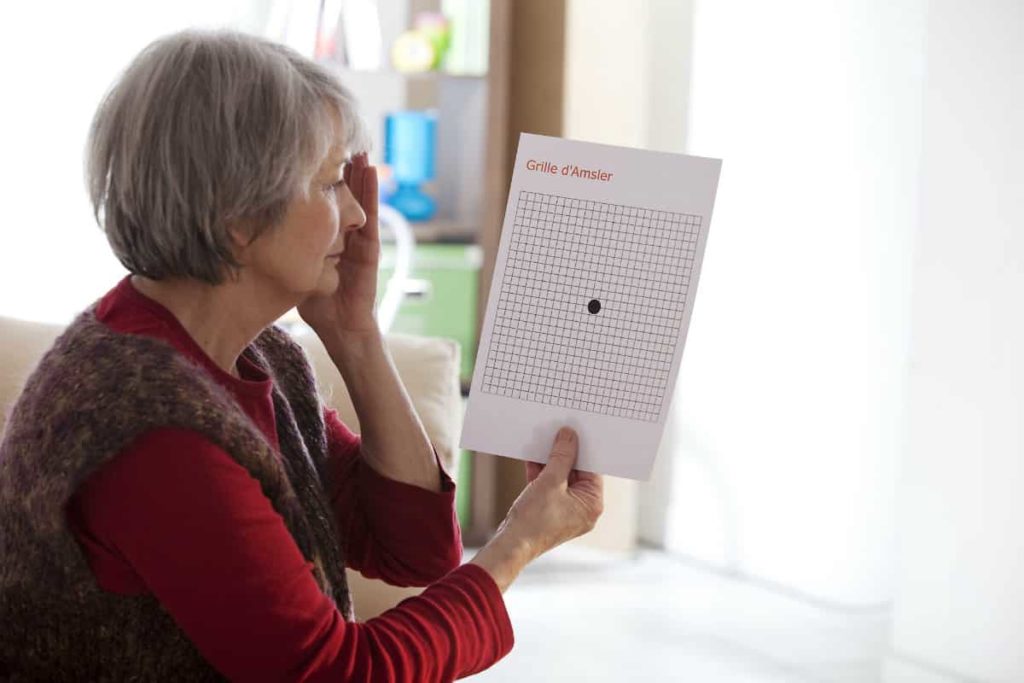Interstitial Cystitis drug Elmiron has recently been linked to serious eye disorders like maculopathy. If you've suffered vision problems after taking Elmiron, you may be wondering:
You can learn more about your legal options in a free consultation.
Pentosan polysulfate sodium (PPS) is a drug used to treat painful bladder conditions, known in the medical field as interstitial cystitis. Elmiron is a popular name brand version of PPS and is used to treat both interstitial cystitis and osteoarthritis. Recent medical studies have revealed that Elmiron and other forms of PPS may be linked to serious vision disorders and even blindness.
In a 22-year period between 1997 and 2019, the Food and Drug Administration Adverse Event Reporting System (FAERS) received at least 100 reports of Elmiron patients who suffered from vision disorders. Eight of those 100 were deemed serious. Another 22 mentioned different versions of a vision condition known as maculopathy.

Maculopathy (also known as macular degernation) is a medical term that refers to any pathological condition involving the macula, which is a central area of the retina. The macula is the area of the eye where vision is the most sensitive and accurate.
People who suffer from maculopathy often experience a progressive loss of their central vision, usually in both eyes. This condition causes severe impairments to vision functions. Maculopathy does not cause total blindness because lateral vision is not affected.
Our defective drug lawyers are currently offering free consultations to Elmiron patients who have been diagnosed with maculopathy.
In 2019, Wolters Kluwer Health, Inc. published a study that analyzed six patients over a 2-year period who had unique pigmentary maculopathy related to longterm use of PPS. These patients reported having trouble reading and "prolonged dark adaption." Most of these patients were first diagnosed with "pattern dystrophy", which the study says played a role in the delayed recognition of a link between these conditions and the use of Elmiron.
This analysis was done between May of 2015 and October of 2017. By 2019, there had been ten patients who were diagnosed with the same maculopathy condition.
There are several vision-related side effects associated with chronic use of Elmiron, such as:
Additionally, Elmiron has several other side effects not related to vision:
It's worth noting that Elmiron has never listed maculopathy as a side effect.
Maculopathy is painless and some people don't even notice this condition, as their other eye may be unaffected and compensate for the loss of vision in the affected eye. However, there are a couple of symptoms to watch out for:
If you suspect that you may have maculopathy, we advise speaking to a doctor about doing an Amsler test. These tests analyze vision status.
Pharmaceutical companies have a legal duty to make sure their drugs are safe and to warn consumers of any potential side effects from taking these drugs. When a particular drug is found to have serious side effects that were not listed in warning labels, people who have suffered from health problems due to taking the drug may have grounds for a lawsuit against the pharmaceutical company that manufactured the drug.
Our defective drug lawyers believe that Janssen Pharmaceuticals, the manufacturer of Elmiron, may have failed to warn their customers that chronic use of Elmiron can lead to serious vision problems. This would constitute negligence and could provide grounds for a lawsuit by those who have had their vision impaired due to taking Elmiron.
If you or a loved one has been diagnosed with maculopathy or any other vision issues after longterm use of Elmiron, you can learn more about your legal rights, including a potential Elmiron lawsuit, in a free consultation with our defective drug lawyers.
